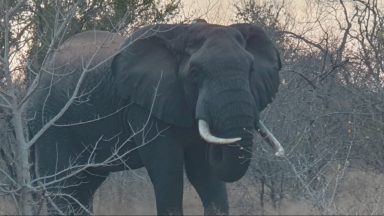So many people around the world derive great pleasure from watching and listening to birds, but did you know that they are also an intricate component of healthy ecosystems, which are needed for the survival of humankind? Ecosystems such as forests and oceans provide us with food and raw materials, keep the climate stable and transform pollutants into nutrients. Birds play an important role in the effective functioning of these systems. Healthy birds mean healthy wetlands, forests and oceans.
Birds are the most mobile creatures on Earth, many travelling tens of thousands of kilometres each year across vast landscapes. In fact, around half of the world’s bird species migrate, with more than 100 of these roaming species recorded in southern Africa. But, habitat loss, pesticides, and hunting and trapping on stopover grounds have taken a major toll on bird numbers. Since birds are a great indicator of the general state of our biodiversity, when their numbers drop, we need to take action to help the environment.
The survival of migratory birds depends on the availability of well-connected networks of habitats along their routes, which they use for feeding and resting. For more than two decades, Peace Parks Foundation has worked to restore ecological linkages across southern Africa for land, marine and bird life through the creation of transboundary conservation areas. The hope is that migratory birds’ breeding and wintering grounds as well as the places they stop to rest and recuperate on their long migrations, can be protected. One of these places is Banhine National Park. When the rains come, hundreds of bird species arrive to feed on the fresh supply of food that comes with the pans filling up with water.
Over in Maputo Special Reserve, populations of the Great White pelican come to breed every year, attracted to the large landscape, shallow swamps and an abundant food supply.
The positive health benefits of birds and nature on humans’ well-being cannot be overstated. During the pandemic, people across the world have been listening to and watching birds like never before. For many people around the world, bird song has also been a source of comfort and joy, connecting people to each other and to nature. In fact, billions of migratory birds have continued to sing, fly and soar between their breeding and non-breeding sites.

